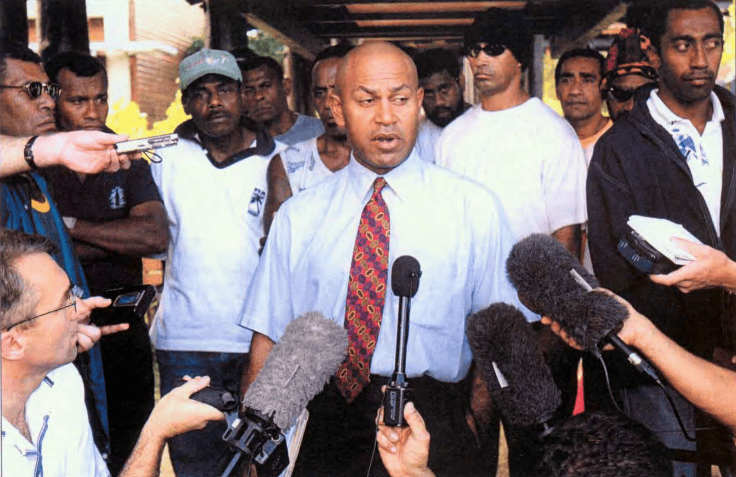Coup leader George Speight has been granted a presidential pardon and released from Fiji’s correctional facility Thursday, 24 years after orchestrating the 2000 coup that shook the Pacific nation.
The decision, made by the Mercy Commission on 18 September 2024, saw the release of Speight, who was serving a life sentence for treason.
Speight, a former businessman turned politician, led the coup on 19 May 2000, seizing the Fijian Parliament along with rebel soldiers from the now-disbanded Counter Revolutionary Warfare (CRW) Unit. They held then-Prime Minister Mahendra Chaudhry and 35 other MPs hostage for 56 days, demanding the exclusion of ethnic Indians from Fiji’s government, under the guise of championing Indigenous Fijians.
Speight’s actions plunged Fiji into political chaos. He was charged with treason in 2001 and pleaded guilty. Initially sentenced to death, his sentence was commuted to life imprisonment in 2002. For over two decades, Speight was held at Nukulau Island before being transferred to the Naboro Correction Facility.
“The Fiji Corrections Services (FCS) provided positive reports on Speight’s behaviour, recommending a pardon,” a statement from the Mercy Commission said. “Psychological and judicial assessments were also reviewed, with the FCS supporting his reintegration into society.”
Speight served 8,820 days in prison, during which time the FCS noted his good conduct and participation in rehabilitation programmes.
“The Commission has recommended that the President, Ratu Wiliame Katonivere, grant mercy to Speight, recognising his rehabilitation and the length of time he has served,” the statement continued.
The pardon was granted under Section 119(5) of Fiji’s Constitution, which allows the President to exercise clemency following a recommendation from the Mercy Commission.
“Following the Commission’s deliberations, recommendations for mercy were made, and the President, acting under Section 119(5), granted pardons to all petitioners,” the Fiji Correction Service confirmed.
Speight’s petition for a pardon was submitted in May 2023, after he had served more than 20 years of his life sentence.
Speight’s release comes as part of a broader review by the Mercy Commission, which also recommended pardons for other individuals, including former CRW soldier Shane Stevens.
Shane Stevens, a key figure in the deadly mutiny at Queen Elizabeth Barracks on 02 November 2000, was also pardoned and released. The mutiny, intended to overthrow then-military commander Frank Bainimarama, resulted in the deaths of three loyalist soldiers: Lance Corporal Simione Rawaileba, Private Osea Rokosirinavosa, and Private Temo Veilewai. The mutiny remains one of Fiji’s most violent and consequential military confrontations.
Stevens was convicted of incitement to mutiny in 2002 and had been incarcerated for 7,934 days, nearly 22 years, at Naboro Prison. Like Speight, Stevens was noted for his good behaviour during his sentence, and FCS reports highlighted his progress in rehabilitation.
“Reports and evaluations from FCS recommended Stevens for a pardon, citing his positive progress during imprisonment,” the Mercy Commission’s statement read. “After careful consideration, the Commission recommended that Stevens be granted mercy, with his punishment postponed for an indeterminate period.”
Alongside Speight and Stevens, others granted clemency include Sekina Vosavakatini, Nioni Tagici, Adi Livini Radininausori, Mahendra Patel and John Miller.
“As a result, the named individuals have been officially discharged from custody Thursday, 19 September 2024,” a statement from Fiji Correction Service said.
James Sanjesh Goundar, also recommended for pardon, passed away on 6 September before the decision was enacted.
“The pardon, unfortunately, came too late for him. “The Fiji Correction Service and the government remain committed to the principles of justice, rehabilitation, and the rule of law, and the Mercy Commission plays a vital role in ensuring that petitions for clemency are considered carefully, with due regard to the circumstances of each case,” the statement said.
